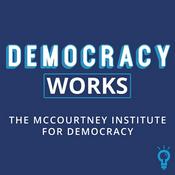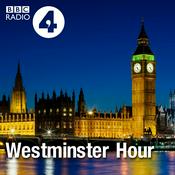173 épisodes
- Energy Secretary Chris Wright signed a key document on January 28 that creates a categorical exclusion for advanced nuclear reactors under the National Environmental Policy Act. According to the Federal Register announcement published February 2 by the Department of Energy, this means projects like small modular reactors and Generation IV designs normally skip full environmental reviews if they meet safety criteria on fuel type, design, and waste management. World Nuclear News reports the move aligns with May 2025 executive orders praising advanced nuclear for passive safety and lower risks, speeding up deployment for power and industry while still checking for extraordinary impacts.
On the same front, the Department of Energy's Office of Environmental Management announced a partnership on February 4 with California nuclear fuel firm General Matter. American Nuclear Society news states they signed a lease for the long-dormant Fuels and Materials Examination Facility at Hanford Site in Washington, a 190,000-square-foot building idle since 1993. The goal is to revive it for advanced fuel cycle tech to meet artificial intelligence energy demands, with General Matter handling upgrades and community talks. EM Assistant Secretary Tim Walsh called it a step toward American energy dominance under President Trump.
Also on February 4, the Office of Environmental Management restarted uranium recovery at the Savannah River Site H Canyon Facility in South Carolina, as detailed in their official release, boosting domestic fuel processing.
Meanwhile, lawmakers introduced the Energy Threat Analysis Center Act of 2026 on February 2. Industrial Cyber reports Representatives Kathy Castor and Gabe Evans propose expanding Department of Energy cyber support for the energy sector through 2031, including threat sharing and analysis centers to counter rising attacks from state actors and ransomware.
These steps highlight a push for nuclear revival, fuel security, and cyber defenses in recent days.
Thank you for tuning in, listeners. Please subscribe for more updates. This has been a quiet please production, for more check out quiet please dot ai.
For more http://www.quietplease.ai
Get the best deals https://amzn.to/3ODvOta
This content was created in partnership and with the help of Artificial Intelligence AI - Energy Secretary Chris Wright has made significant moves this week to accelerate advanced nuclear technology development in the United States. On January 28th, Wright signed a document establishing a categorical exclusion for advanced nuclear reactors from the National Environmental Policy Act review process. This means that advanced nuclear projects meeting specific safety criteria will no longer require lengthy environmental assessments or impact statements, streamlining approval timelines considerably.
According to the Department of Energy, this exclusion applies to advanced reactors including microreactors, small modular reactors, and Generation IV and Generation III plus reactors, provided they demonstrate reduced risk of releasing radioactive materials and can properly manage any hazardous or radioactive waste. The DOE will still evaluate individual projects to ensure they meet exclusion criteria and check for extraordinary circumstances that might warrant full environmental review. The department noted that construction impacts will be considered under existing land use and zoning requirements.
The reasoning behind this decision reflects confidence in advanced reactor design. These reactors incorporate passive safety mechanisms, improve physical architecture, increase operational flexibility, and reduce fuel disposal risks. The DOE emphasized that advanced fuel forms and inherently safe designs make these reactors appropriate for expedited permitting even when developed for power production and industrial applications beyond experimental purposes.
In related nuclear fuel developments, the Department of Energy's Office of Environmental Management announced a partnership with General Matter, a California based nuclear fuel company. The two organizations signed a lease to potentially redevelop the Fuels and Materials Examination Facility at the Hanford Site in Washington state. This 190,000 square foot facility has remained idle since 1993 after never being used for nuclear purposes following its completion in 1984.
General Matter will conduct evaluations to assess returning the facility to service, including site characterization and facility upgrades. The partnership aims to advance advanced nuclear fuel cycle technologies and materials to help meet future demands, particularly for artificial intelligence applications. General Matter's chief executive officer emphasized that rebuilding America's nuclear fuel capabilities is critical for strengthening the nuclear industrial base and reducing reliance on foreign providers.
These developments signal the administration's commitment to accelerating domestic nuclear energy capabilities. The categorical exclusion process is open for public comment for 30 days from its February 2nd publication date.
Thank you for tuning in and please remember to subscribe. This has been a quiet please production, for more check out quiet please dot ai.
For more http://www.quietplease.ai
Get the best deals https://amzn.to/3ODvOta
This content was created in partnership and with the help of Artificial Intelligence AI U.S. Energy Secretary Navigates Global Partnerships and Domestic Affordability Challenges
03/2/2026 | 1 minU.S. Secretary of Energy Chris Wright has been active in recent international and domestic energy discussions. On January 29, 2026, he met with South Koreas Minister Jung-Kwan Kim of the Ministry of Trade, Industry and Resources at the U.S. Department of Energy in Washington, D.C. According to the Ministry of Trade, Industry and Resources website, the two agreed to establish a working-level consultation channel to speed up bilateral cooperation in energy and resources sectors.
On February 2, 2026, a coalition of 37 organizations led by the American Energy Alliance sent Secretary Wright a letter warning about hidden language in a recent Energy and Water Development Appropriations Bill report. The American Energy Alliance reports that this language, tied to the PROVE IT Act, asks the National Energy Technology Laboratory to study U.S. emissions intensity compared to other countries, potentially paving the way for a national carbon tax. Alliance President Tom Pyle stated that such a tax would hurt American families, businesses, and energy affordability, urging the Secretary to resist this push.
Utility Dive coverage from late January highlights broader Department of Energy actions under Wrights leadership, including proposals on colocation for data centers and transmission planning reforms amid rising energy costs. The outlet also notes the Departments moves to alter or axe 83 billion dollars in loans, as part of efforts to prioritize energy security.
These developments reflect Wrights focus on strengthening U.S. energy partnerships abroad while pushing back against policies seen as threats to domestic affordability.
Thank you listeners for tuning in, and remember to subscribe. This has been a quiet please production, for more check out quiet please dot ai.
For more http://www.quietplease.ai
Get the best deals https://amzn.to/3ODvOta
This content was created in partnership and with the help of Artificial Intelligence AIUnleashing Nuclear Innovation: US DOE Seeks State Partnerships for Integrated Nuclear Campuses
01/2/2026 | 2 minThe United States Department of Energy under Secretary Chris Wright issued a call today to state governments for expressions of interest in creating integrated nuclear innovation campuses. According to Rigzone, this request for information marks the first step toward voluntary federal-state partnerships to advance regional economic growth, enhance national energy security, and build a full nuclear energy strategy. These campuses could host activities across the nuclear fuel lifecycle, including fuel fabrication, enrichment, reprocessing of used fuel, and waste disposition, as well as advanced reactor deployment, power generation, manufacturing, and data centers.
The initiative aligns with President Donald Trumps executive order from May twenty-three, twenty twenty-five, aiming to expand United States nuclear capacity from one hundred gigawatts to four hundred gigawatts by twenty fifty. States are asked to outline priorities like workforce development, infrastructure, economic diversification, and needed funding or incentives.
Earlier this month, on January five, Secretary Wright announced two point seven billion dollars in awards to American Centrifuge Operating, General Matter, and Orano Federal Services for low-enriched uranium and high-assay low-enriched uranium production. Rigzone reports Wright stating these awards commit the administration to restoring a secure domestic nuclear fuel supply chain, transitioning away from foreign sources like China and Russia, which currently dominate high-assay low-enriched uranium at commercial scale.
In related news, a United States federal court ruled Friday that the Department of Energy violated federal law by forming a climate science advisory group without public notice or meetings. Reuters reports the Environmental Defense Fund and Union of Concerned Scientists sued, arguing the secretive group produced a biased report influencing climate regulation efforts. Energy Department spokesperson Ben Dietderich responded that the groups sought to silence scientists noting unsettled climate science, with the report still public.
The Department also extended an emergency order to prevent blackouts in New England ahead of a second winter storm, as reported by Press Release Point.
These moves highlight Secretary Wrights focus on bolstering nuclear energy and domestic supply chains amid legal and weather challenges.
Thank you for tuning in, listeners. Please subscribe for more updates. This has been a quiet please production, for more check out quiet please dot ai.
For more http://www.quietplease.ai
Get the best deals https://amzn.to/3ODvOta
This content was created in partnership and with the help of Artificial Intelligence AI- The United States Department of Energy under Secretary Chris Wright issued a call to state governments today for expressions of interest in creating integrated nuclear sites, known as Nuclear Lifecycle Innovation Campuses. According to the Department of Energy online statement, these voluntary federal-state partnerships aim to advance regional economic growth, enhance national energy security, and build a full nuclear energy strategy across the fuel lifecycle, including fabrication, enrichment, reprocessing of used fuel, and waste disposition. The sites could also support advanced reactor deployment, power generation, manufacturing, and data centers, depending on state priorities like workforce development and infrastructure.
Rigzone reports that states are asked to outline their visions, funding needs, risk sharing, incentives, and federal partnerships required. This move aligns with the Trump administration's push to expand United States nuclear capacity from 100 gigawatts to 400 gigawatts by 2050, following a May 2025 executive order.
Earlier this month on January 5, Secretary Wright announced 2.7 billion dollars in awards to American Centrifuge Operating, General Matter, and Orano Federal Services for low-enriched uranium and high-assay low-enriched uranium production. The Department of Energy stated this restores a secure domestic fuel supply chain, reducing reliance on China and Russia, the only countries producing high-assay low-enriched uranium at commercial scale today per the World Nuclear Association.
In related news, a United States District Court ruled Friday that the Department of Energy violated federal advisory committee laws by forming a secret Climate Working Group of skeptics. Reuters reports environmental groups like the Environmental Defense Fund sued, claiming it influenced efforts to repeal climate regulations. Department spokesperson Ben Dietderich defended the group, saying it highlighted unsettled climate science.
These developments highlight Secretary Wright's focus on nuclear expansion amid legal challenges.
Thank you for tuning in, listeners. Please subscribe for more updates. This has been a quiet please production, for more check out quiet please dot ai.
For more http://www.quietplease.ai
Get the best deals https://amzn.to/3ODvOta
This content was created in partnership and with the help of Artificial Intelligence AI
Plus de podcasts Gouvernement
Podcasts tendance de Gouvernement
À propos de 101 - The Secretary of Energy
This is your What does the US Secretary of Energy do, a 101 podcast."Secretary of Energy Living Biography" is a captivating biographical podcast offering listeners an in-depth look into the life and career of the current and past Secretaries of Energy. Updated regularly, this podcast dives into the pivotal moments, challenges, and achievements that have shaped their contributions to the global energy landscape. Perfect for energy enthusiasts, policymakers, and history buffs, each episode provides unique insights and stories that illuminate the evolution of energy leadership. Tune in to stay informed about the influential figures driving the future of energy policy.For more info go to https://www.quietplease.aiCheck out these deals https://amzn.to/48MZPjs
Site web du podcastÉcoutez 101 - The Secretary of Energy, L'ordre du monde ou d'autres podcasts du monde entier - avec l'app de radio.fr

Obtenez l’app radio.fr gratuite
- Ajout de radios et podcasts en favoris
- Diffusion via Wi-Fi ou Bluetooth
- Carplay & Android Auto compatibles
- Et encore plus de fonctionnalités
Obtenez l’app radio.fr gratuite
- Ajout de radios et podcasts en favoris
- Diffusion via Wi-Fi ou Bluetooth
- Carplay & Android Auto compatibles
- Et encore plus de fonctionnalités


101 - The Secretary of Energy
Scannez le code,
Téléchargez l’app,
Écoutez.
Téléchargez l’app,
Écoutez.






































